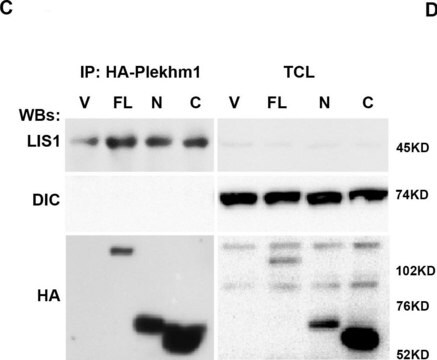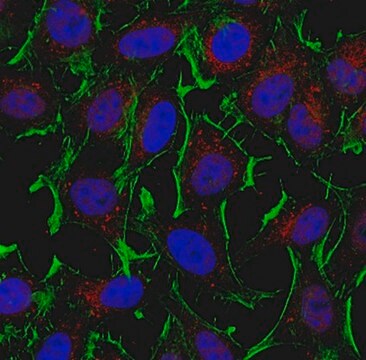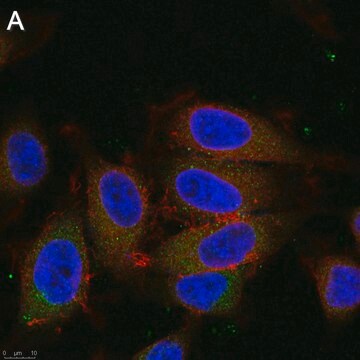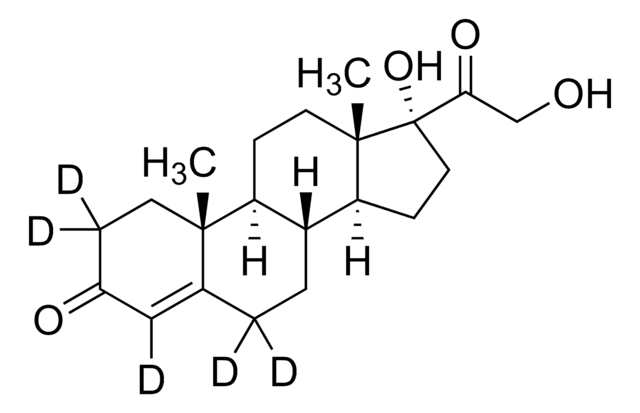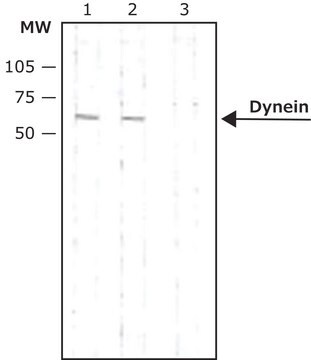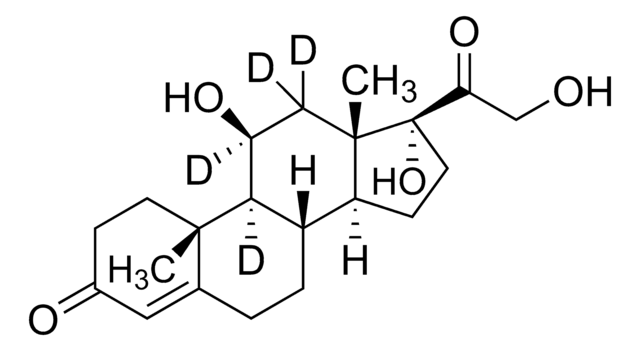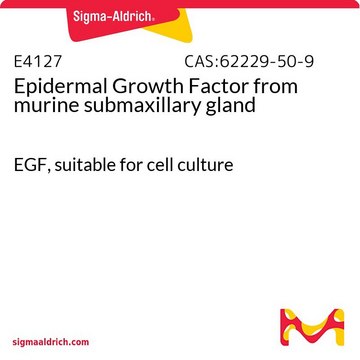推荐产品
生物源
mouse
品質等級
共軛
unconjugated
抗體表格
ascites fluid
抗體產品種類
primary antibodies
無性繁殖
440.4, monoclonal
分子量
antigen 440 kDa
包含
15 mM sodium azide
物種活性
human, chicken
技術
indirect ELISA: suitable
western blot: 1:100 using a chick brain extract or Kinesin enriched rat brain extract
同型
IgG2a
UniProt登錄號
運輸包裝
dry ice
儲存溫度
−20°C
目標翻譯後修改
unmodified
基因資訊
human ... DNAH1(25981) , DNAH2(146754) , DNAH3(55567) , DNAH5(1767)
一般說明
Monoclonal Anti-Dynein (Heavy Chain) (mouse IgG2a isotype) is derived from the 440.4 hybridoma produced by the fusion of mouse myeloma cells and splenocytes from BALB/c mice. Dynein axonemal heavy chain 1 (DNAH1) encodes for an inner dynein heavy chain. This gene is mapped to the human chromosome location 3p21.1. DNAH1 is expressed in the testis and other ciliated cells. Dyneins are composed of two or three distinct heavy chains, three intermediate chains and at least four light chains.
免疫原
cytoplasmic dynein from chicken embryo brain.
應用
Monoclonal Anti-Dynein (Heavy Chain) antibody produced in mouse has been used in:
- indirect immunofluorescence at 1:50 dilution
- immunocytochemistry
- enzyme-linked immunosorbent assay (ELISA)
- immunoblotting
- dot blot
生化/生理作用
Dynein has also been implicated in cytoplasmic motile functions, including chromosomal movement, retrograde organelle and axonal transport. It also regulates the endocytic pathway and the organization of the Golgi apparatus. Mutations in dynein axonemal heavy chain 1 (DNAH1) are associated with primary ciliary dyskinesia and multiple morphological anomalies of the flagella (MMAF) that leads to asthenozoospermia and male infertility.
Dynein is a motor protein that regulates the movement of organelles to the ‘minus′ end of microtubules. These motor proteins are also involved in spindle organization, retrograde transport and chromosome movement
外觀
Suppied as ascites fluid with 15 mM sodium azide.
免責聲明
Unless otherwise stated in our catalog or other company documentation accompanying the product(s), our products are intended for research use only and are not to be used for any other purpose, which includes but is not limited to, unauthorized commercial uses, in vitro diagnostic uses, ex vivo or in vivo therapeutic uses or any type of consumption or application to humans or animals.
未找到合适的产品?
试试我们的产品选型工具.
儲存類別代碼
12 - Non Combustible Liquids
水污染物質分類(WGK)
nwg
閃點(°F)
Not applicable
閃點(°C)
Not applicable
Mariem Ben Khelifa et al.
American journal of human genetics, 94(1), 95-104 (2013-12-24)
Ten to fifteen percent of couples are confronted with infertility and a male factor is involved in approximately half the cases. A genetic etiology is likely in most cases yet only few genes have been formally correlated with male infertility.
R E Fowler et al.
Molecular and biochemical parasitology, 117(2), 187-200 (2001-10-19)
We have studied the occurrence, stage specificity and cellular location of key molecules associated with microtubules in Plasmodium falciparum merozoites. Antibodies to gamma tubulin, conventional kinesin and cytoplasmic dynein were used to determine the polarity of merozoite microtubules (mt), the
L Wordeman et al.
The Journal of cell biology, 114(2), 285-294 (1991-07-01)
We have used indirect immunofluorescence in combination with correlative EM to subdivide the mammalian kinetochore into two domains based on the localization of specific antigens. We demonstrate here that the fibrous corona on the distal face of the kinetochore plate
Jason Yi et al.
The Journal of cell biology, 202(5), 779-792 (2013-08-28)
T cells rapidly reposition their centrosome to the center of the immunological synapse (IS) to drive polarized secretion in the direction of the bound target cell. Using an optical trap for spatial and temporal control over target presentation, we show
K T Vaughan et al.
The Journal of cell biology, 131(6 Pt 1), 1507-1516 (1995-12-01)
Cytoplasmic dynein is a retrograde microtubule motor thought to participate in organelle transport and some aspects of minus end-directed chromosome movement. The mechanism of binding to organelles and kinetochores is unknown. Based on homology with the Chlamydomonas flagellar outer arm
我们的科学家团队拥有各种研究领域经验,包括生命科学、材料科学、化学合成、色谱、分析及许多其他领域.
联系技术服务部门